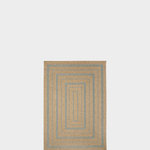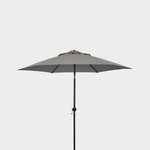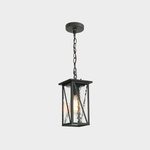Quartz Countertops Cost Calculator
National AverageHow much does it cost to install quartz countertops? The national average to install quartz countertops ranges from . The total cost of your project depends on numerous factors including square footage, quartz grade, quartz finish, edge treatment and your geographical location. Use this calculator to estimate the cost to install quartz countertops based on the information you input.
Estimate your project cost
Cost to Install Quartz Countertops
What factors affect the cost of quartz countertops?
Engineered quartz, often referred to simply as quartz, is composed of ground natural quartz, resins and pigments to make a stunning yet surprisingly low-maintenance product. Since quartz countertops are an engineered material, they can mimic the look of almost any natural stone on the market, such as marble and granite countertops, or give you a pop of color that can’t be achieved naturally. Engineered quartz is also impact-resistant and nonporous, meaning it does not need to be sealed as other materials do and it resists scratches and stains. The cost to install quartz countertops depends on the following variables:
Counter Space: The square footage of your countertops will play a big role in determining your project cost. Quartz countertops are commonly sold in slabs, and the size and amount of slabs you need will impact your installation cost.
Quartz Grade: Engineered quartz countertop costs can vary widely for the material alone, and the grade, or quality, you choose can significantly impact the total cost of your project. The grade of quartz counter options varies depending on the manufacturer you choose. Grades are based on factors such as the blend ratio of natural quartz to resin (the more resin, the lower the grade) and the quality of the raw materials, production process, slab consistency (color, thickness and so on) and warranty.
Quartz Finish: Quartz countertops come in various finishes, and the finish you choose will influence your overall aesthetic. Polished and honed quartz are the two most common finishes. Polished quartz has a glossy finish whereas honed quartz has a matte, low-sheen finish. Other quartz finishes include natural, concrete and rough. Natural finishes enhance the textural appearance of quartz and are popular on darker countertops, concrete finishes don’t reflect light and have a soft texture, and rough finishes have the most raw and textured look.
Edge Treatment: If you want or need anything other than standard edging options, your quartz countertop costs will increase. Standard edging options vary by manufacturer, but you’ll usually be able to find eased, bevel and bullnose styles. Not sure what all of these edging designs look like? Here are some of the more common quartz edging options to choose from:
- Eased: A straight edge with a very slightly eased radius for a smooth but subtle finish.
- Bevel: An angled edge with a slanted cut (usually 45 degrees) that exposes more of the stone for a modern touch. A double bevel includes an angled cut on the top and bottom of the slab’s edge.
- Bullnose: A smooth, rounded edge that makes the quartz less susceptible to chipping around the edges. A half bullnose has only one rounded edge.
- Ogee: A detailed edge that resembles an “S” on the top half with a straight bottom edge below.
- Triple Pencil: An intricate edge consisting of three pencil-shaped cuts that step down the edge of the quartz.
- Specialty Edging: Some manufacturers offer detailed quartz edging designs that are unique to their products. If you’re not interested in the standard edging options, see if manufacturers offer custom edging designs.
Labor: Labor costs will be a significant portion of the overall cost. Some professionals charge by the hour, but the hourly rate can vary widely depending on the experience level of the contractor and the area you live in. Other technical factors that will contribute to the installation costs include:
Fabrication and Cutouts: The fabrication process includes selecting your quartz, measuring your countertop space, cutting the quartz and polishing it. Fabrication costs are dependent on the size, shape and special finishes you desire for your new quartz countertop. The more slab cuts and fixture or sink cutouts that are required, the more your fabrication costs will be. Certain finishes and edging designs can also be more expensive than others, depending on the manufacturer you go with.
Leveling: It’s important that the quartz surface installation is completely level to avoid any potential cracks in the future. If the contractor needs to do any extra work to create a level surface, such as sanding down cabinets or adding shims, this will likely increase your installation costs.
Supports: Depending on the weight and size of the quartz slab being installed, you might be required to add supports. This is common over appliances, such as dishwashers, and for large overhangs on islands. The more supports you need, the more your installation might cost.
Seams: The more seams you have, the more tedious the job is for the installer to get it right. Most kitchen countertops will have at least one seam, which is where two pieces of quartz need to be properly lined up and joined with epoxy. If you have any unique veining or a pattern in your design, aligning slabs along their seams can be trickier. Make sure you decide on seam placement before the quartz is installed.
Location: Labor and material costs may vary depending on your location.
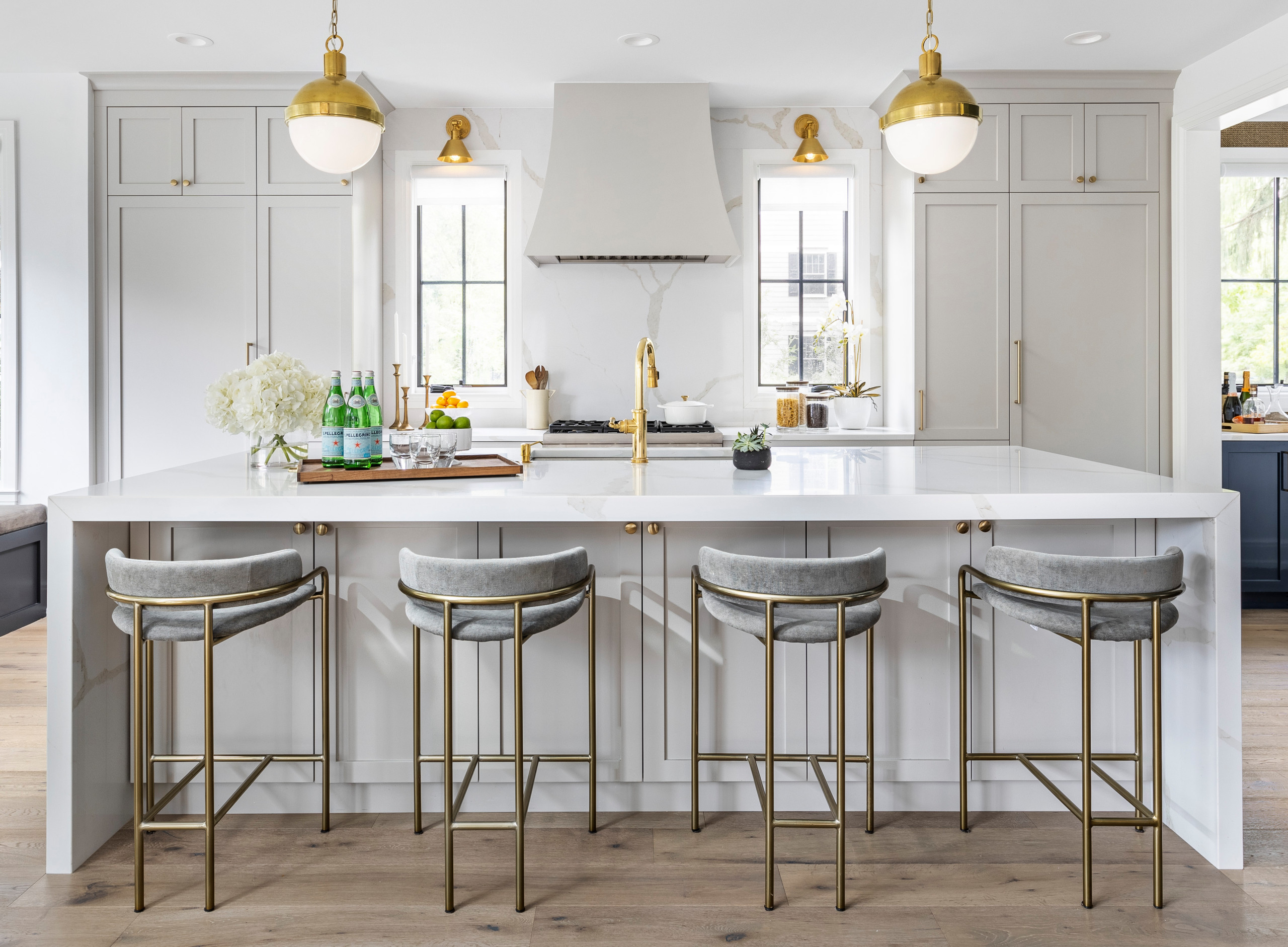
Quartz Grades
Quartz comes in three distinct grades: first choice, commercial and second choice. The grade of quartz you choose will not only affect cost, but durability and appearance.
First Choice
Made from the most premium quartz, First Choice quartz comes in rich colors and has minimal veining. It’s smooth to the touch, much like marble, and has the least amount of resin mixed in. It’s the most expensive grade, but also the most durable.
Commercial
Also referred to as “standard quartz” by many manufacturers, commercial-grade quartz is almost as durable as First Choice quartz. It’s a popular choice among hotels and restaurants because it’s durable and aesthetically pleasing, but typically less expensive than First Choice quartz.
Second Choice
The least expensive of the three, Second Choice quartz is still durable, but may not have the same high-end finish or coloring as First Choice quartz. It’s a good option for starter homes or investment properties.
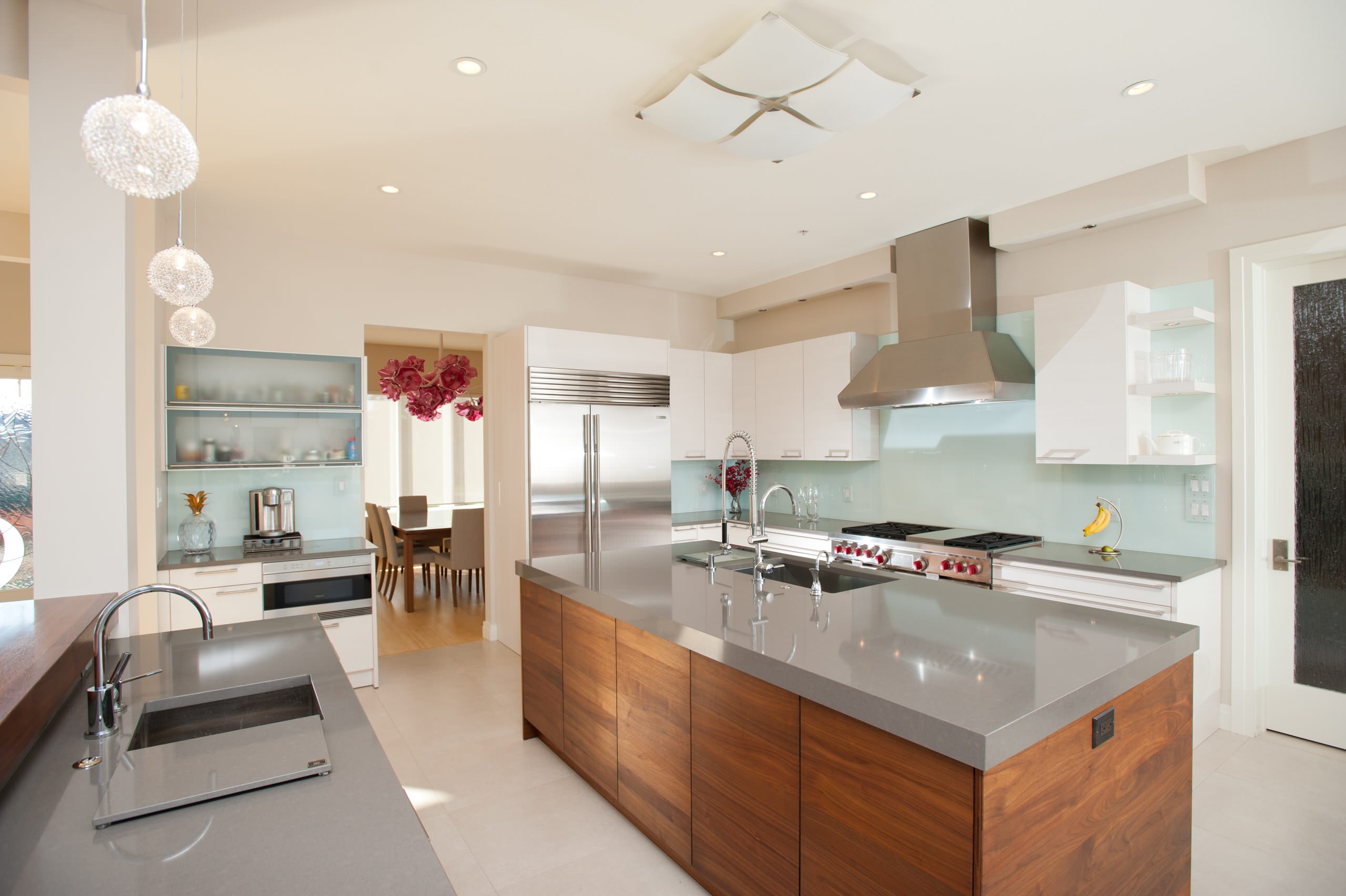
Other Quartz Cost Considerations
Beyond the main variables that factor into your roof replacement estimate, keep these additional cost considerations in mind:
Home Valuation: The return on investment for installation of quartz countertops can be between 60%-80% for homeowners.
Sustainability Savings: As homeowners are increasingly concerned about sustainability, they may wonder how engineered quartz stacks up against other countertop materials. For a number of reasons, it’s actually one of the most eco-friendly materials. First, it’s one of the most abundant resources, so it’s easily sourced. It’s also highly durable, long-lasting and requires less maintenance than other natural stones. Last but not least, it’s 100% recyclable, so if you decide to replace it down the line, you don’t have to worry about waste.
Timeless Design: As you’re weighing your quartz options, keep longevity and timeless style in mind. Thanks to its durability, quartz is a long-lasting countertop material. If you choose a style that’s neutral with minimal patterns, it will stand the test of time.
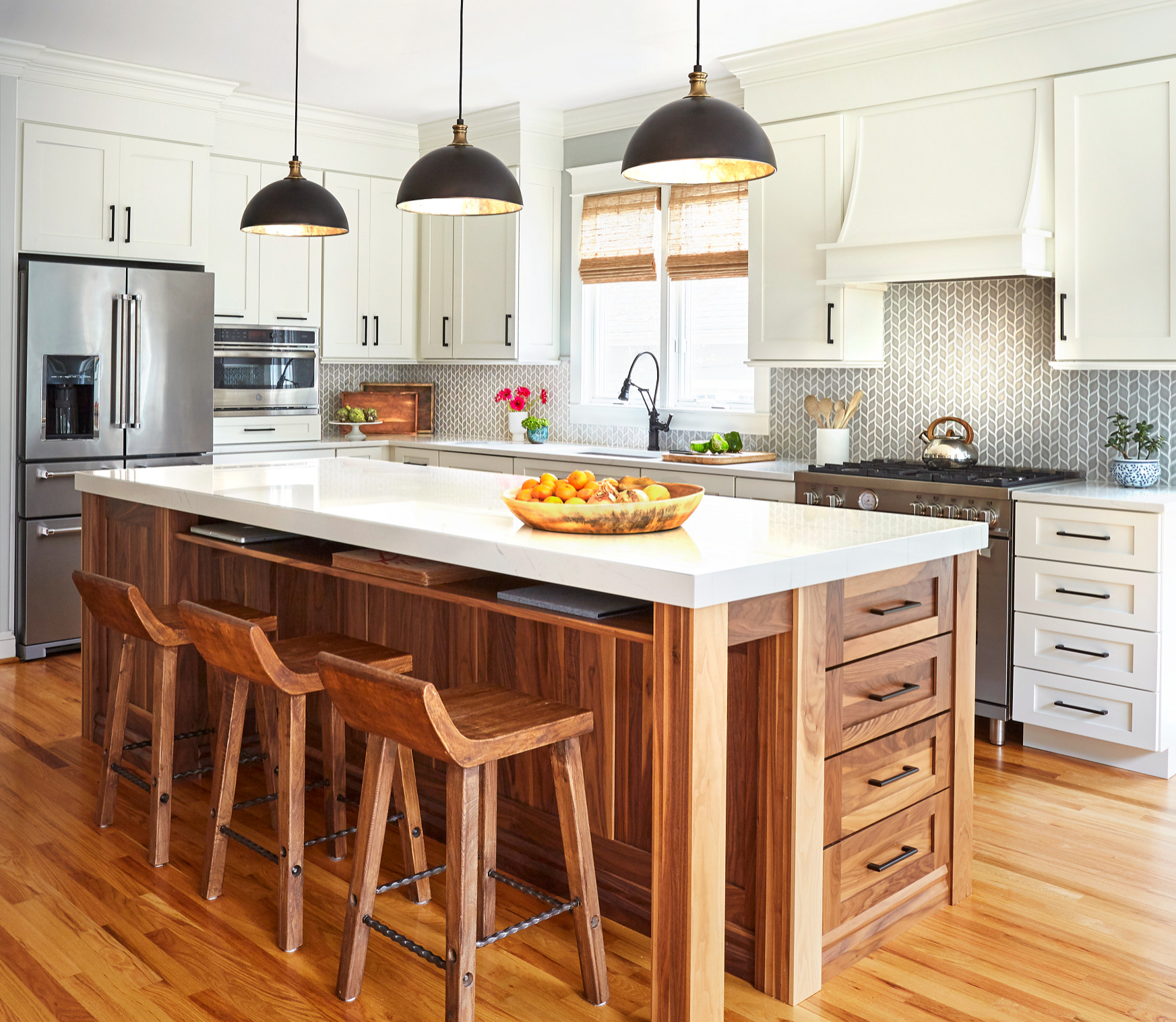
Looking for a Quartz Countertop Contractor?
By knowing the factors that impact the cost of quartz countertops, you can set a realistic budget. When you’re ready to get official estimates, it’s a good idea to contact multiple countertop companies to get a few different quotes for your project. Take your time to compare cost estimates and features from different brands and manufacturers to make sure you’re getting exactly what you expect for your money. Find countertop contractors near you. Have other kitchen remodeling projects in mind? Search here for local kitchen remodelers.

